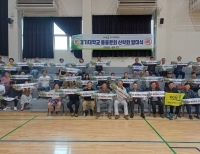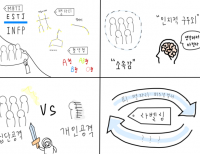In February 2025, the entire country was shocked by a tragic incident that occurred at an elementary school in Daejeon. A teacher, suffering from mental illness, tragically murdered an eight-year-old girl named Ha-neul Kim. This incident has sparked a nationwide debate on school safety and teachers’ mental health care. In response, the government and political circles have introduced a bill known as the ‘Ha-neul Law’. However, with the announcement of this bill, concerns about infringement on teacher’s rights, debates over its effectiveness, and the potential for political exploitation have been raised, leading to growing social conflict.
The ‘Ha-neul Law' aims to create a safer school environment by addressing both student safety and teachers’ mental health. The bill strengthens the mandatory leave system, allowing the Ministry of Education to require teachers who are unable to fulfill their teaching duties due to mental health issues to take leave. It also includes a provision that mandates mental health assessments to determine whether teachers on leave are capable of resuming their educational responsibilities when they return. Furthermore, measures have been established to create a psychological support system for teachers, including the expansion of counseling centers and regular psychological counseling services for teachers facing mental health challenges. Additionally, the bill seeks to enhance school safety by improving emergency response systems and reinforcing safety facilities on campus.
The government justifies the bill by emphasizing the protection of students’ educational rights and the establishment of a mental health management system. The intention is to prevent mental health issues among teachers before they arise and to enable a swift response to crises. However, despite these objectives, several aspects of the bill have been heavily criticized for infringing on teachers' rights. One major concern is the potential violation of human rights, as the Ministry of Education would manage teachers’ mental health information, granting the authority to impose mandatory leave or even dismissal. Critics argue that this approach places undue responsibility for mental health issues on teachers and could lead to stigmatization. Opponents of the bill also express concerns about the potential risk that teachers suffering from mental illness could be unfairly stigmatized. There is criticism that the issue of a teacher’s mental health is being treated as an individual problem, with attempts to resolve it through punitive measures such as mandatory leave or dismissal, rather than systemic support.
A survey conducted by the Incheon Teachers Union revealed that 93.2% of 844 teachers in the Incheon area oppose the ‘Ha-neul Law’. The primary reasons for opposition are concerns over the leakage of sensitive personal information and potential violations of basic rights. A separate survey of teachers in Gangwon-do showed that 63% hold negative views of the ‘Ha-neul Law’, with many also opposing the expansion of CCTV in classrooms. Psychiatrists have expressed concerns that the bill could lead to a reluctance to seek therapy, reinforcing negative stereotypes about mental illness and encouraging people to conceal their conditions. Furthermore, there is ongoing debate about the vague criteria for assessing teachers' mental health, which could lead to arbitrary decisions by administrative agencies and the education office.
Some critics have raised concerns that the 'Haneul Law' is being exploited politically. They argue that naming the bill after the victim appeals to public emotion and that political forces may be using it to further their own agendas. Some opposition members have suggested that, if the bill passes, it could lead to increased government control over human resources and be seen as an attempt to strengthen political involvement in educational administration. There is growing criticism that political circles are pushing the bill forward without sufficient research or public consensus and that promoting legislation based on emotional appeals is likely to reduce its effectiveness and lead to unintended side effects.
Nevertheless, the ruling and opposition party legislators joined hands, to write the ‘Ha-neul Law’, inspired by the case that occurred at the school where the children were obligated to spend their time being educated. On March 10th, the fifth conference of public economy inspection was held. There, the government said that to prevent another tragedy like this, they would make an effort to not only pass the bill in Parliament, but also institute practical systemic improvements. Also, they added that the CCTV extension to blind spots within the school, a supervised handover, and the principle of accompanying students home were reinforced for first and second graders at elementary schools. The Ministry of Education spoke that the legislative situation of ‘Ha-neul Law’ and future plans were shared with the Office of Education at the meeting. We can surmise that a legislative procedure of the bill is imminent through their opinions.
Ha-neul’s father pleaded for the government to pass the ‘Ha-neul Law’ emphasizing that what happened to Ha-neul should never happen again. A lot of laws named after victims have been enacted in Korea. Like ‘The Ha-jun Law’ to prevent accidents at sloping parking lots was passed in 2017. ‘The Min-sik Law’ was inspired by a child who died at a Children Protection Zone in 2019, and ‘The Jeong-In Law’ about the punishment of child abuse was passed in 2021. There are benefits, it can memorialize the victim, and prevent similar cases at the same time. However, since these bills are enacted after someone has died or bad incidents have already occurred, the citizens’ criticism and pain can’t disappear.
82nd Cub Reporter•LEE JEONG MIN•agaoo1@naver.com
83rd Cub Reporter•KIM YE LIM•kyl5838@gmail.com
- TAG
-
 Freedom Given to Youth: An Opportunity for Choice or a Burden of Constraint?
“Are we truly free today?” Classical literature is far more than time-honored stories. It offers profound insights into human nature and society that transcend time, remaining a valuable resource for examining the challenges our world faces today. This article will draw on George Orwell’s 1984 and Charles Dickens’ Oliver Twist to explore the contemporary issues of youth housing and the emergence of a surveillance society ...
Freedom Given to Youth: An Opportunity for Choice or a Burden of Constraint?
“Are we truly free today?” Classical literature is far more than time-honored stories. It offers profound insights into human nature and society that transcend time, remaining a valuable resource for examining the challenges our world faces today. This article will draw on George Orwell’s 1984 and Charles Dickens’ Oliver Twist to explore the contemporary issues of youth housing and the emergence of a surveillance society ...

 [단신] 산악회, 본교 동문의 버팀목이 될 수 있도록
[단신] 산악회, 본교 동문의 버팀목이 될 수 있도록
 [사회메인] 노인 인구 1,000만 시대, 준비 없는 사회가 불안해
[사회메인] 노인 인구 1,000만 시대, 준비 없는 사회가 불안해
 [네컷만화] 라벨링 문화
[네컷만화] 라벨링 문화
 [진리터] 결국 우리 모두 돌아볼 것이니
[진리터] 결국 우리 모두 돌아볼 것이니

 목록
목록










